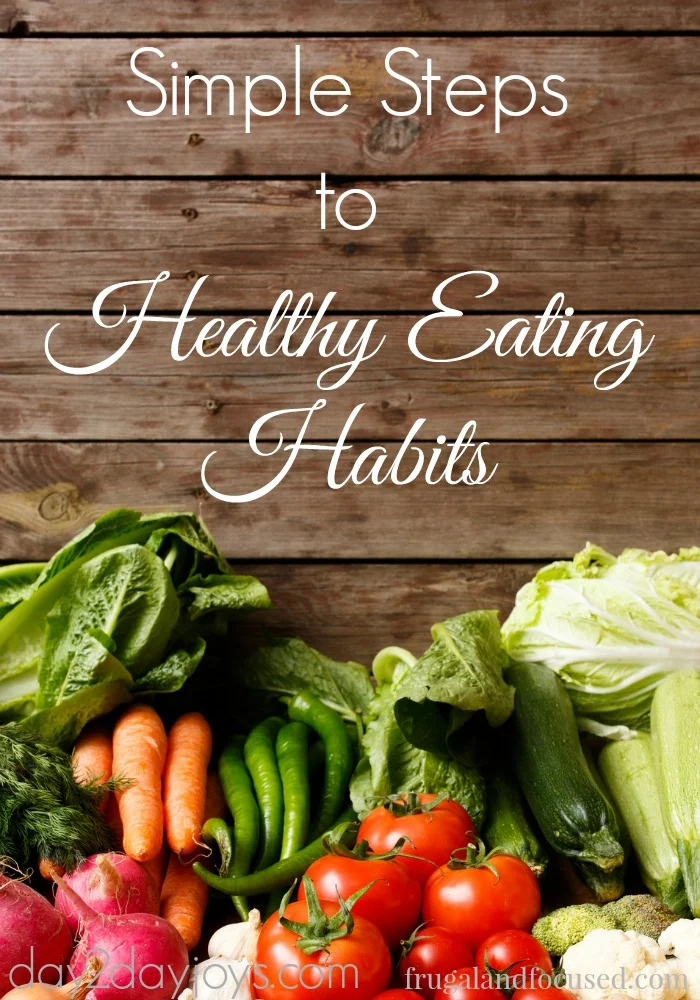Healthy eating habits are essential for maintaining a balanced and healthy lifestyle. Making simple changes to your diet can have a significant impact on your overall well-being. By incorporating more fruits, vegetables, and whole grains into your meals, you can improve your energy levels, manage your weight, and reduce your risk of chronic diseases. In addition, it is important to limit your intake of processed foods, sugary drinks, and unhealthy fats. These small adjustments can lead to a better you, both physically and mentally.
When it comes to maintaining healthy eating habits, there are various alternative approaches that can be beneficial for your overall health. Instead of focusing solely on calorie counting, you can shift your focus to mindful eating and listening to your body’s hunger and fullness cues. Additionally, incorporating more plant-based meals into your diet can provide a wide range of nutrients and benefits for your health. It’s also important to stay hydrated and choose water as your primary beverage, rather than sugary or caffeinated drinks. By prioritizing these alternative approaches, you can improve your relationship with food and make sustainable changes for a healthier you.
1. Understanding Healthy Eating Habits
Healthy eating is not about strict dietary limitations, staying unrealistically thin, or depriving yourself of the foods you love. Rather, it’s about feeling great, having more energy, improving your health, and boosting your mood. By making small changes to your eating habits, you can make a big impact on your overall well-being. It’s important to understand that healthy eating is not a one-size-fits-all approach. It’s about finding what works for you and making sustainable choices that you can maintain in the long run.
Healthy eating habits involve consuming a variety of nutrient-rich foods from all the food groups. This includes fruits, vegetables, whole grains, lean proteins, and healthy fats. It’s also important to limit the intake of processed foods, added sugars, and excessive amounts of sodium. Making mindful choices about portion sizes and paying attention to hunger and fullness cues are also key components of healthy eating habits.
2. Incorporating More Fruits and Vegetables
Fruits and vegetables are packed with essential vitamins, minerals, and fiber that are beneficial for your overall health. Aim to incorporate a variety of colorful fruits and vegetables into your meals and snacks. You can start by adding a serving of fruit to your breakfast and including a side of vegetables with your lunch and dinner. Experiment with different cooking methods and recipes to make fruits and vegetables more appealing and enjoyable.
One simple way to increase your fruit and vegetable intake is to make them easily accessible. Keep a bowl of fresh fruits on your kitchen counter and pre-cut vegetables in the fridge for quick and convenient snacking. You can also explore local farmer’s markets or join a community-supported agriculture (CSA) program to discover seasonal produce and support local growers.
3. Choosing Whole Grains over Refined Grains
Whole grains are an important source of fiber and nutrients, while refined grains have been stripped of many beneficial components during processing. When shopping for bread, pasta, rice, and cereal, opt for whole grain options such as whole wheat, brown rice, quinoa, and oats. Reading food labels can help you identify products that are made with whole grains. Look for terms like “whole grain” or “whole wheat” as the first ingredient on the list.
Incorporate whole grains into your meals by trying new recipes that feature these nutritious ingredients. You can experiment with whole grain salads, stir-fries, and grain bowls to add variety and flavor to your diet. Making the switch to whole grains can provide long-lasting energy, improve digestion, and contribute to a lower risk of chronic diseases.
4. Prioritizing Lean Proteins
Protein is essential for building and repairing tissues, making enzymes and hormones, and supporting a healthy immune system. Including a variety of lean protein sources in your diet, such as poultry, fish, beans, and tofu, can help you feel satisfied and maintain muscle mass. Aim to incorporate protein into each meal and snack to support your overall health and well-being.
When preparing meals, focus on lean cooking methods such as grilling, baking, steaming, or sautéing to minimize added fats and oils. Experiment with plant-based protein options like lentils, chickpeas, and quinoa to diversify your protein intake. By prioritizing lean proteins, you can support your body’s needs and promote optimal functioning.
5. Embracing Healthy Fats
Healthy fats, such as those found in avocados, nuts, seeds, and olive oil, are essential for brain function, hormone production, and nutrient absorption. Instead of avoiding fats altogether, focus on incorporating sources of healthy fats into your meals and snacks. Use avocado as a spread on toast, sprinkle nuts and seeds on salads and yogurt, and drizzle olive oil over roasted vegetables.
It’s important to be mindful of portion sizes when consuming fats, as they are calorie-dense. By embracing healthy fats in moderation, you can support heart health, improve cholesterol levels, and feel satisfied after meals. Avoiding trans fats and minimizing the intake of saturated fats from sources like red meat and full-fat dairy products is also important for maintaining a healthy balance of fats in your diet.
6. Limiting Added Sugars
Excessive consumption of added sugars, often found in sugary beverages, desserts, and processed snacks, can contribute to weight gain, dental issues, and an increased risk of chronic diseases. It’s important to read food labels and be aware of hidden sources of added sugars in packaged products. Look for terms like sucrose, high-fructose corn syrup, and cane sugar in the ingredient list.
To limit added sugars in your diet, focus on choosing whole foods and preparing homemade snacks and treats. You can satisfy your sweet tooth with naturally sweet options like fresh fruit, dried fruit, or homemade smoothies. Being mindful of portion sizes and enjoying sugary treats in moderation can help you maintain a balanced approach to sugar consumption.
7. Monitoring Sodium Intake
Excessive sodium intake can contribute to high blood pressure, heart disease, and kidney issues. It’s important to be mindful of the amount of salt added to meals during cooking and to pay attention to the sodium content of packaged foods. Opt for low-sodium or reduced-sodium options when available, and use herbs, spices, and citrus juices to flavor your dishes without relying solely on salt.
By monitoring your sodium intake, you can support your cardiovascular health and reduce the risk of related complications. Paying attention to portion sizes and choosing whole, minimally processed foods can also help you manage your sodium consumption effectively.
8. Practicing Mindful Eating
Mindful eating involves paying attention to the sensory experience of eating, such as the taste, texture, and aroma of food, as well as recognizing hunger and fullness cues. By slowing down during meals, avoiding distractions, and savoring each bite, you can cultivate a greater appreciation for food and make more conscious choices about what and how much you eat.
Practicing mindful eating can help you develop a healthier relationship with food, prevent overeating, and enhance your overall enjoyment of meals. It’s also an opportunity to connect with your body’s signals and make choices that align with your physical and emotional well-being.
| Healthy Eating Habits | Simple Changes |
|---|---|
| Eat more fruits and vegetables | Replace unhealthy snacks with fresh fruits or vegetables |
| Choose whole grains | Swap white bread and rice for whole grain options |
| Limit processed foods | Reduce intake of packaged and processed foods |
| Drink more water | Replace sugary drinks with water or herbal teas |
| Control portion sizes | Use smaller plates and bowls to help with portion control |
Healthy Eating Habits: Simple Changes for a Better You
Healthy eating habits can be achieved by making simple changes to your diet. By incorporating more fruits and vegetables, whole grains, and water into your daily routine, and by reducing processed foods and controlling portion sizes, you can improve your overall health and well-being. Small changes can lead to big results when it comes to your diet and lifestyle.



